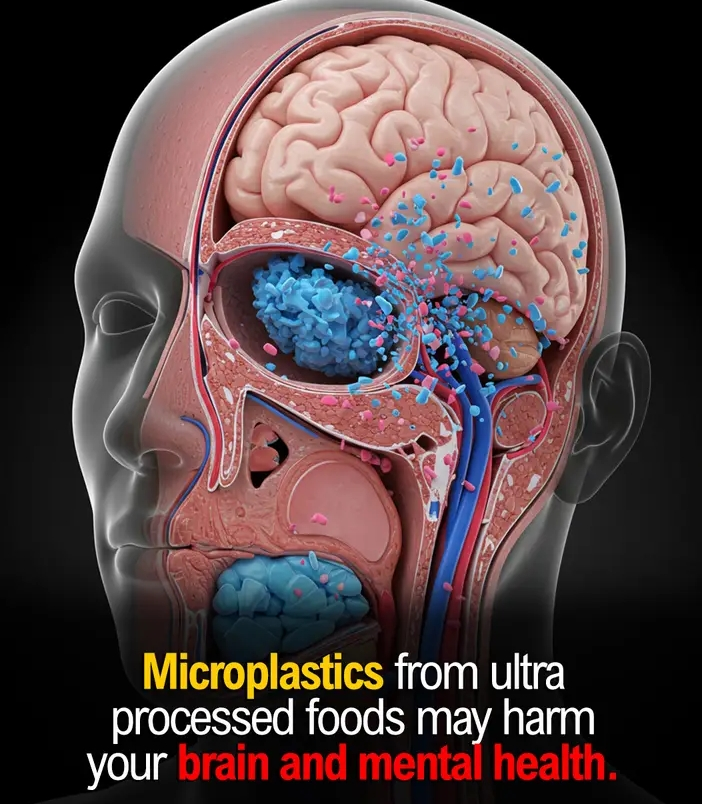-
Wallet
-
Explore Our Features
-
Marktplatz
-
Seiten
-
Gruppen
-
Reels
-
Gossip
-
Blogs
-
Veranstaltungen
-
Blogs
-
 Ai and Tools
Ai and Tools
-
Donation
-
Jobs
-
Gruppen
-
Spiele
-
Feed
Micro-plastic💀

Scientists recently found that the amount of microplastics—tiny plastic particles smaller than 5 millimeters—in the human brain is about the size of a plastic spoon and has increased by 50% between 2016 and 2024. Surprisingly, the brain contains more microplastics than the liver or kidney, and people with dementia had higher microplastic levels than those without. Researchers are now investigating how microplastics, especially those coming from ultra-processed foods (UPFs), may be affecting brain health.
Ultra-processed foods like chicken nuggets contain up to 30 times more microplastics than whole foods such as chicken breasts. These foods now make up over half of daily calorie intake in places like the US. The microplastics in UPFs can cross the blood-brain barrier, the brain’s natural defense, and cause inflammation, oxidative stress, and damage to brain cells. These effects may contribute to rising rates of dementia, depression, anxiety, and poor sleep, as confirmed by studies linking UPF consumption to these conditions.
Scientists are calling this situation a “reckoning” since microplastics crossing into the brain challenges what we considered safe inside our bodies. They suggest developing a Dietary Microplastic Index to measure exposure and are exploring ways to remove microplastics from people’s bodies, like a blood filtering process called apheresis, though more research is needed. With both UPF consumption and microplastic pollution rising globally, understanding this connection is urgent for protecting brain health.



